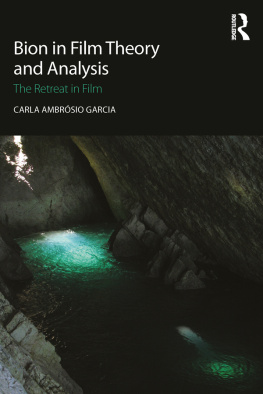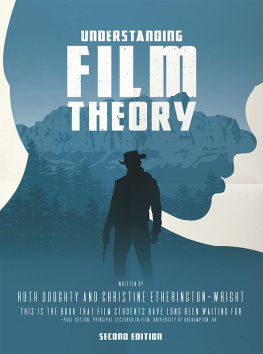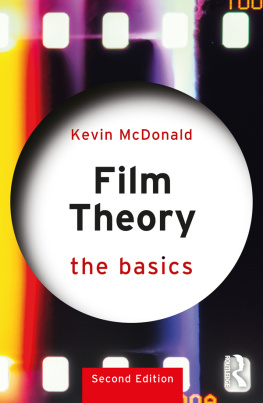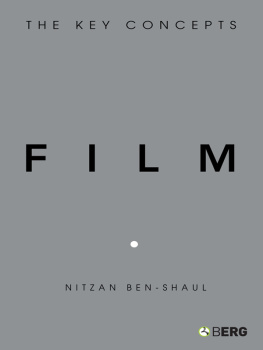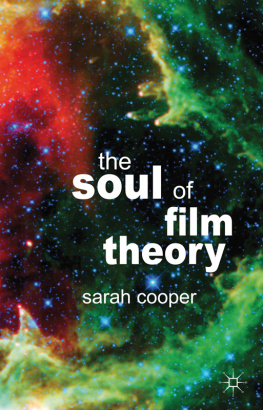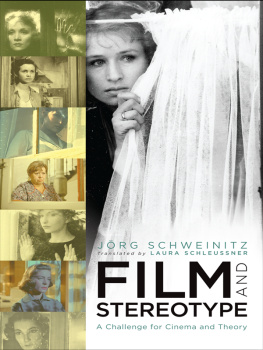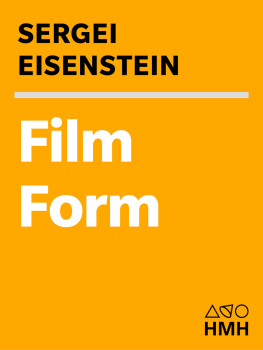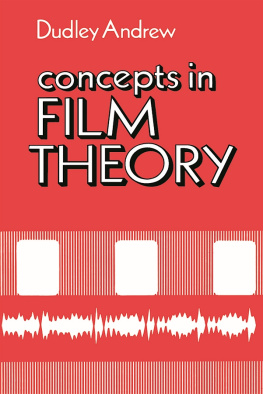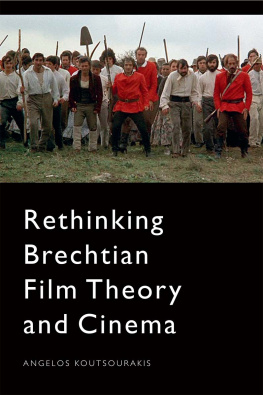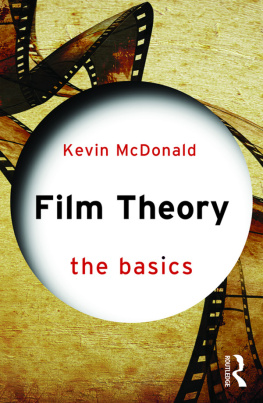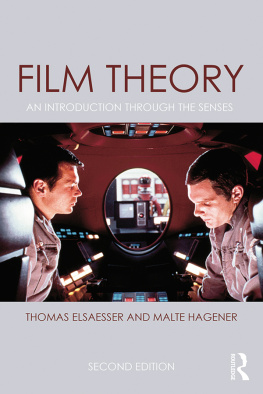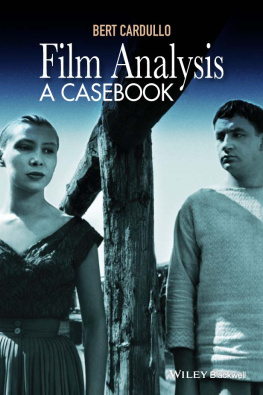Ambrósio Garcia Carla - Bion in film theory and analysis : the retreat in film
Here you can read online Ambrósio Garcia Carla - Bion in film theory and analysis : the retreat in film full text of the book (entire story) in english for free. Download pdf and epub, get meaning, cover and reviews about this ebook. year: 2017, publisher: Routledge, genre: Romance novel. Description of the work, (preface) as well as reviews are available. Best literature library LitArk.com created for fans of good reading and offers a wide selection of genres:
Romance novel
Science fiction
Adventure
Detective
Science
History
Home and family
Prose
Art
Politics
Computer
Non-fiction
Religion
Business
Children
Humor
Choose a favorite category and find really read worthwhile books. Enjoy immersion in the world of imagination, feel the emotions of the characters or learn something new for yourself, make an fascinating discovery.
- Book:Bion in film theory and analysis : the retreat in film
- Author:
- Publisher:Routledge
- Genre:
- Year:2017
- Rating:3 / 5
- Favourites:Add to favourites
- Your mark:
- 60
- 1
- 2
- 3
- 4
- 5
Bion in film theory and analysis : the retreat in film: summary, description and annotation
We offer to read an annotation, description, summary or preface (depends on what the author of the book "Bion in film theory and analysis : the retreat in film" wrote himself). If you haven't found the necessary information about the book — write in the comments, we will try to find it.
Bion in film theory and analysis : the retreat in film — read online for free the complete book (whole text) full work
Below is the text of the book, divided by pages. System saving the place of the last page read, allows you to conveniently read the book "Bion in film theory and analysis : the retreat in film" online for free, without having to search again every time where you left off. Put a bookmark, and you can go to the page where you finished reading at any time.
Font size:
Interval:
Bookmark:

In Bion in Film Theory and Analysis: The Retreat in Film, Carla Ambrsio Garciaintroduces the rich potential of the thinking of British psychoanalyst Wilfred Bionfor film theory. By so doing, she rethinks the space of the cinema as a space ofretreat, and brings new insights into the representation of retreat in film.
Presented in two parts, the book seeks to deepen our understanding of the filmexperience and psychical growth. examines representations ofretreat in four European films, directed by Ingmar Bergman, Pier Paolo Pasolini,Georges Perec and Bernard Queysanne, and Manoel de Oliveira, showing themto articulate a gesture of retreat as an emotionally turbulent transitional stage inthe development of the psyche what Bion conceptualizes as caesura.
Through its investigation of the retreat in cinema, the book challenges commonunderstandings of retreat as a regressive movement by presenting it as a gestureand space that can also be future-oriented. Bion in Film Theory and Analysis will beof significant interest to academics and students of psychoanalysis, psychotherapy,and film and media studies, as well as psychoanalysts and psychotherapists.
Carla Ambrsio Garcia is a filmmaker and academic who completed her doctoratein Film Studies at Kings College London (funded by Fundao Cincia e Tecnologia in Portugal). Her articles on film and psychoanalysis have been publishedin academic journals and edited collections, and she currently teaches at KingsCollege and Royal Holloway, University of London.
Bion in Film Theory and Analysis is that rare thing: a book that offers a renewedencounter between psychoanalysis and cinema. At once disciplined andproductively wayward, this book opens up new ground for thinking about whatwe do when we use the environment created by a work of art: film, in this instance,but Garcias inter vention has a reach well beyond her immediate concerns. Inparticular, through her explorations of Bions writings, the retreat becomes agenerative figure via which to reflect not only on what psychoanalysis can do toour understanding of the experience of film but, more broadly, the conditions oflife and labour in the 21st century. At stake, in effect, is a question about the futuresof human mind and being and what cinema can contribute to our understandingof the forms of resistance made possible by retreat.
Prof. Vicky Lebeau, Professor of English, University of Sussex
This is a sophisticated piece of original research at the intersection of psychoanalysisand film studies. Carla Ambrsio Garcia brilliantly demonstrates why film theoryscanonical accounts of spectatorial experience need to be revisited in the light ofWilfred Bion (and object-relations generally), and facilitates a productive thinkingspace for the ongoing discussion about how we might conceive of a revolutionarypsychical metamorphosis in and through the experience of film.
Dr Andrew Asibong, Reader in Film and Cultural Studies,Birkbeck, University of London
Carla Ambrsio Garcias fascinating book offers a new way of thinking aboutcinema, and its introduction of Bion to film studies ought to be both noticed andlong lasting.
Dr Agnieszka Piotrowska, Filmmaker and Reader in FilmPractice and Theory, University of Bedfordshire
The Retreat in Film
Carla Ambrsio Garcia

First published 2017
by Routledge
2 Park Square, Milton Park, Abingdon, Oxon OX14 4RN
and by Routledge
711 Third Avenue, New York, NY 10017
Routledge is an imprint of the Taylor & Francis Group, an informa business
2017 C. Ambrsio Garcia
The right of C. Ambrsio Garcia to be identified as author of this work has been asserted by her in accordance with Sections 77 and 78 of the Copyright, Designs and Patents Act 1988.
All rights reserved. No part of this book may be reprinted or reproduced or utilised in any form or by any electronic, mechanical, or other means, now known or hereafter invented, including photocopying and recording, or in any information storage or retrieval system, without permission in writing from the publishers.
Trademark notice: Product or corporate names may be trademarks or registered trademarks, and are used only for identification and explanation without intent to infringe.
British Library Cataloguing in Publication Data
A catalogue record for this book is available from the British Library
Library of Congress Cataloging in Publication Data
Names: Ambrsio Garcia, Carla, author.
Title: Bion in film theory and analysis: the retreat in film /
Carla Ambrsio Garcia.
Description: Abingdon, Oxon; New York, NY: Routledge, 2017. |
Includes bibliographical references and index.
Identifiers: LCCN 2016030453| ISBN 9781138193031 (hardback : alk. paper) |
ISBN 9781138193048 (pbk. : alk. paper) | ISBN 9781315639604 (ebook)
Subjects: | MESH: Bion, Wilfred R. (Wilfred Ruprecht), 18971979. |
Psychoanalysis | Motion Pictures as Topic
Classification: LCC RC506 | NLM WM 460 | DDC 616.89/17dc23
LC record available at https://lccn.loc.gov/2016030453
ISBN: 978-1-138-19303-1 (hbk)
ISBN: 978-1-138-19304-8 (pbk)
ISBN: 978-1-315-63960-4 (ebk)
Typeset in Bembo and Stone Sans
by Florence Production Ltd, Stoodleigh, Devon, UK
PART I
The retreat in cinema
PART II
The retreat in film
The image on the cover of this book was captured in a sea cave near Sesimbra, in Portugal. It was captured by my sister Ana with her digital camera, probably as I loaded my film camera underneath a dark cloth, feeling the films progress through its interior with the tips of my fingers. Or perhaps as I carefully measured the distance between the film plane and the cave wall with a laser, so that I could turn the focus ring to the appropriate setting. In the process of working with 16 mm film, there are times in which we cannot rely on our eyes. There are stages in which we become aware of not seeing, and of having to wait in order to see. This awareness and waiting are an intrinsic part of the process of working with analogue formats. My interest in analogue formats goes back to my early university years, when I first entered a darkroom to process and print my own photographs. I learned the time that it takes to produce a photochemical image, the time it takes the latent to become visible. The passage of this time, the blind stages that the analogue process involves, make me appreciate the moment of seeing, make me focus on the moment of looking and on the image itself. The importance of the moment of looking and the importance of the object itself at that moment as aspects of my art practice have made their way into the subject of this book, the retreat in film.
As I shall discuss in what follows, the retreat in film effects a diminution of extraneous light, a filtering or focusing of the light. To my mind, this is what Anas image captures so well. It is a digitally captured image; I am not referring to something inherent to medium or technical support. I am referring to how we use different technical or technological supports in the encounter and exchange between ourselves and our world, which is of course only to a certain extent determined by those supports. Distracted or interrupted viewings of a film can be richly associative. Film has a fleeting, transient quality, which can be embraced in various modes of viewing film. But this book is not about them. This book is about a certain space and time for the experience of film that has a certain physical and psychical quality about it. Perhaps paradoxically, this physical and psychical quality can take many forms. This book is about what I will call cinema, or the retreat in cinema. In my definition, cinema can happen in various places and situations other than the cinema, as long as those places and situations allow a focused experience of film.
Font size:
Interval:
Bookmark:
Similar books «Bion in film theory and analysis : the retreat in film»
Look at similar books to Bion in film theory and analysis : the retreat in film. We have selected literature similar in name and meaning in the hope of providing readers with more options to find new, interesting, not yet read works.
Discussion, reviews of the book Bion in film theory and analysis : the retreat in film and just readers' own opinions. Leave your comments, write what you think about the work, its meaning or the main characters. Specify what exactly you liked and what you didn't like, and why you think so.

